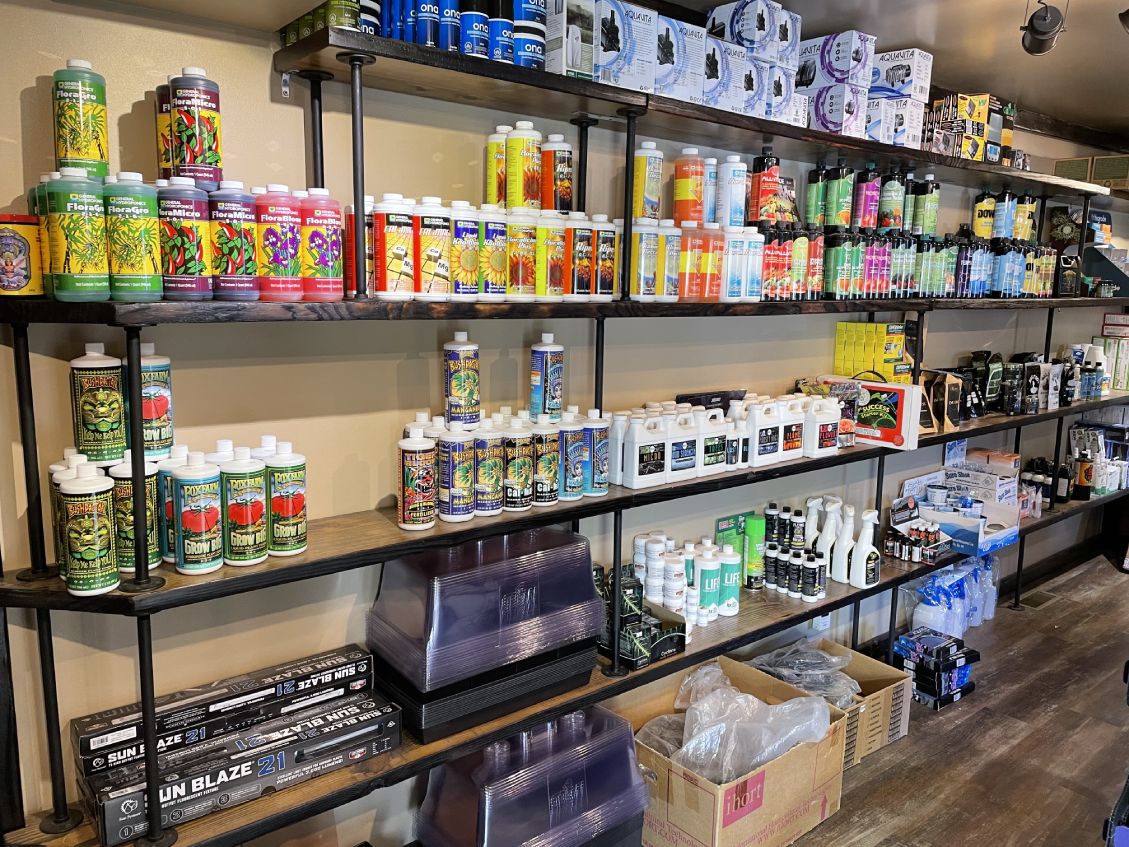Using the Power of Hydroponics: a Deep Dive Into Uses and Various Types
In the realm of modern farming, hydroponics has become a technique that challenges traditional farming techniques by supplying a water-efficient and space-saving choice. The usage of hydroponic systems opens up a world of opportunities for growing plants in diverse atmospheres, ultimately impacting food production and sustainability. As we navigate via the complex landscape of hydroponics, discovering its different types and applications, a much deeper understanding of its possible to change farming methods and address global food safety worries begins to unfold.
Benefits of Hydroponic Farming
Undoubtedly, the advantages of hydroponic farming are ending up being progressively acknowledged in contemporary agricultural techniques. Hydroponic farming offers various benefits over conventional soil-based farming. Among the key advantages is water performance; hydroponic systems make use of up to 90% much less water compared to traditional farming methods. This reduction in water use is essential in combating water shortage concerns internationally.
Moreover, hydroponic farming enables higher control over nutrient levels, causing faster plant development and greater yields. By providing important nutrients straight to the plant origins, hydroponic systems promote much healthier and extra robust plant development. In addition, the regulated atmosphere of hydroponic systems decreases the threat of pests and diseases, lowering the requirement for hazardous chemicals and herbicides.

Common Kinds Of Hydroponic Solutions
One widespread type is the Deep Water Culture (DWC) system, where plant origins are submerged in a nutrient option. The Ebb and Circulation system, likewise known as Flooding and Drainpipe, regularly floods the plant origins with nutrient solution prior to draining it. Wick systems, the easiest kind of hydroponics, use a wick to passively provide vitamins and mineral remedy to the plant roots.
Nutrient Film Strategy (NFT) System

One of the essential benefits of the NFT system is its water effectiveness. The Indoor Earthworm. Because the nutrient solution is recirculated in a shut system, this method utilizes significantly Visit Your URL less water contrasted to conventional soil farming. Additionally, the NFT system is space-efficient, making it ideal for interior farming or in areas with restricted room for conventional farming
Nevertheless, the NFT system calls for careful monitoring and maintenance to make certain the continuous flow of water and nutrients. Any disturbance in the circulation can rapidly impact plant health. On the whole, the NFT system offers a effective and sustainable means to expand plants hydroponically, especially for crops that grow in well-oxygenated root environments.
Deep Water Culture (DWC) System
Relocating from the Nutrient Film Strategy (NFT) system, the Deep Water Culture (DWC) system is a hydroponic method that includes suspending plant roots straight in a nutrient service. Unlike NFT, where origins are continuously exposed to a slim movie of nutrient remedy, DWC plants have their origins immersed in a reservoir loaded with oxygenated nutrient water. The roots hang in the nutrient remedy, permitting for straight uptake of water the original source and vital nutrients.
One of the key benefits of the DWC system is its simpleness and reduced upkeep requirements. DWC systems need ample aeration to prevent root rot and guarantee optimal nutrient absorption.
Aeroponic System
A cutting-edge technique in hydroponics growing, the Aeroponic System utilizes a fogging or misting system to provide nutrients straight to plant origins suspended in the air. This system is known for its capacity to advertise quick growth and effective nutrient uptake due to the straight shipment of nutrients to the origins, allowing the plant to concentrate its energy on development instead than browsing for nutrients.
One of the essential advantages of aeroponics is its water efficiency, as the system utilizes substantially less water compared to traditional soil-based growing approaches. In addition, the precise distribution of nutrients directly to the origins can result in greater yields and faster growth prices. While aeroponics can be a lot more complex to establish and maintain contrasted to various other hydroponic systems, its capacity for increased plant growth and performance makes it a popular selection for commercial growers and hydroponic lovers seeking ideal outcomes.
Verdict
To conclude, hydroponic farming supplies various advantages and various kinds of systems to pick from. The Nutrient Movie Strategy (NFT) system, Deep Water Culture (DWC) system, and Aeroponic system are amongst the most typical methods used in hydroponics. Each system has its very own benefits and restrictions, making it crucial for farmers to carefully consider their demands and choices prior to selecting one of the most appropriate system for their plants.
Unlike other hydroponic systems where plants are submerged in a nutrient remedy, in the NFT system, the origins are exposed to a fantastic read the water just in a shallow film.Relocating from the Nutrient Movie Method (NFT) system, the Deep Water Society (DWC) system is a hydroponic technique that entails putting on hold plant origins straight in a nutrient service.An innovative approach in hydroponics cultivation, the Aeroponic System utilizes a misting or misting system to supply nutrients straight to plant roots suspended in the air. The Nutrient Movie Technique (NFT) system, Deep Water Culture (DWC) system, and Aeroponic system are among the most typical approaches used in hydroponics. Each system has its very own benefits and limitations, making it crucial for farmers to carefully consider their requirements and preferences before selecting the most appropriate system for their crops.